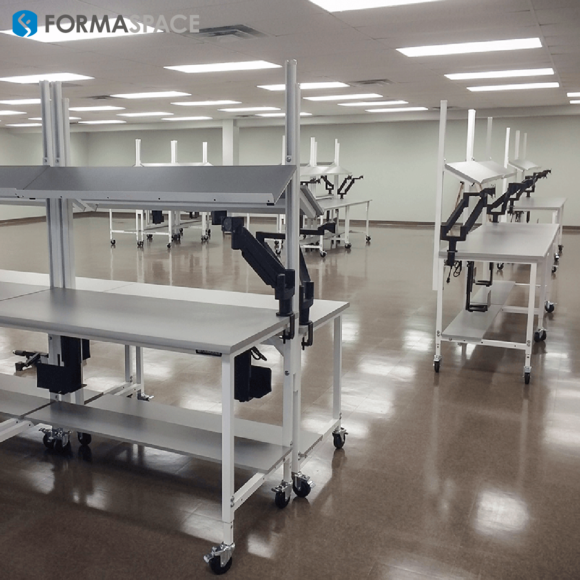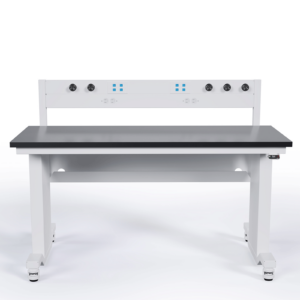Optimism Prevailed at the 2022 Clinical Trials on Alzheimer’s Disease Conference (CTAD) in San Francisco

There was renewed optimism about a new monoclonal antibody (mAb) treatment at the 15th Annual Clinical Trials of Alzheimer’s Disease Conference (CTAD) held in San Francisco during the final weeks of 2022.
The good news was a welcome change from the disappointment stemming from the rollout of an earlier mAb drug for Alzheimer’s disease, Aducanumab (brand name Aduhelm), which, after a controversial conditional FDA approval in 2021, failed to find acceptance in the market due to its limited efficacy (and high prescription cost) and was ultimately withdrawn by its manufacturer Biogen.

In contrast to Aducanumab, the new drug, Lecanemab, demonstrated a clear-cut clinical benefit, reducing the decline of cognitive thinking and memory loss of Alzheimer’s test subjects by 27% over an 18-month timeframe.
Lecanemab is a Monoclonal Antibody (mAb) derived from Mice that Helps Prevent Amyloid Beta Buildup in the Brain
While the cause (or causes) of Alzheimer’s is not fully understood,* one of the leading theories, called the amyloid hypothesis, focuses on the formation of amyloid–β (beta) plaques in the brain. This plaque buildup is thought to compromise memory and cognitive functions.
(*For more detailed information, please see our report outlining the possible causes of Alzheimer’s Disease published in May 2022, including the phosphorylation of tau, which helps produce neurofibrillary tangles that disrupt memory cells, as well as possible connections to diabetes and autoimmune diseases.)
Like Aducanumab before it, the new drug, Lecanemab, belongs to a class of monoclonal antibody (mab) clinical therapies that researchers hope will be able to reduce the accumulation of amyloid–β in the brain and prevent or even reverse the decline of Alzheimer’s patients.
Lecanemab is a humanized monoclonal antibody (mAb158) derived from mouse antibody cells in the laboratory. Its chemical protein formula is:
C6544H10088N1744O2032S46
In animal studies, mAb158 was able to inhibit the growth of amyloid–β protofibrils (early-stage fibrils) and amyloid–β deposits (plaques).

The Results of the Lecanemab “Clarity-AD” Clinical Trial Published in the New England Journal of Medicine (NEJM)
The drug’s developer, Eisai, and collaboration partner, Biogen, announced the results of their Phase III trial (dubbed Clarity-AD) at the 2022 Clinical Trials on Alzheimer’s Disease Conference (CTAD). The results were subsequently published in the New England Journal of Medicine (NEJM).
The 18-month-long Clarity-AD study enrolled 1795 participants with mild cognitive impairment and/or dementia as well as the presence of amyloid–β buildup in the brain –confirmed either via positron emission tomography (PET) scan or cerebrospinal fluid testing.)
In the double-blind study, those receiving intravenous doses of Lecanemab (10 milligram/kilogram every two weeks) had a significant reduction of amyloid–β plaque compared to their initial baseline. (There was no change among those trial participants receiving a placebo.)
Compared to those in the control (placebo) group, participants receiving Lecanemab also demonstrated 27% less decline in memory and thinking as measured by several key assessment tools, including the Clinical Dementia Rating–Sum of Boxes, the Alzheimer’s Disease Assessment Scale (ADAS), the Alzheimer’s Disease Composite Score (ADCOMS) and the Alzheimer’s Disease Cooperative Study–Activities of Daily Living Scale for Mild Cognitive Impairment (ADCS-MCI-ADL).

The FDA Granted Lecanemab (Brand name Leqembi) Accelerated Approval in January 2023
The developer of Lecanemab, Eisai, and its collaboration partner, Biogen, first applied to the FDA’s accelerated approval program in July 2022. It was accepted and given a priority designation as a breakthrough therapy.
On January 6, 2023, the FDA granted Lecanemab “Accelerated Approval” for Alzheimer’s patients with mild cognitive impairment or mild dementia stage of the disease.
Eisai and Biogen will introduce the new Lecanemab drug to the US market under the brand name Leqembi.
Concerns about Possible Adverse Side Effects, including ARIA (amyloid-related imaging abnormalities)
The Clarity-AD study published in the New England Journal of Medicine called out some concerns for patients taking Lecanemab:
“Lecanemab resulted in infusion-related reactions in 26.4% of the participants and amyloid-related imaging abnormalities with edema or effusions in 12.6%.”
During the trial period, at least two deaths involving brain bleeding or hemorrhaging occurred among patients taking Lecanemab, so clinicians and caregivers should monitor patients carefully.
These concerns were reflected in the FDA approval of the drug, which includes a warning for patients and caregivers to be on the lookout for signs of amyloid-related imaging abnormalities (ARIA). These include incidents of temporary swelling in the brain and/or small spots of bleeding in the brain or brain surface.
Patients experiencing ARIA will typically present symptoms that include headache, confusion, dizziness, vision changes, nausea, and seizure.
These symptoms are generally thought to be short-lived, however, and will typically resolve on their own, according to the FDA.

Formaspace is Your Laboratory Research Partner
If you can imagine it, we can build it, here at our factory headquarters in Austin, Texas.
To find out more, contact your Formaspace Design Consultant today.












